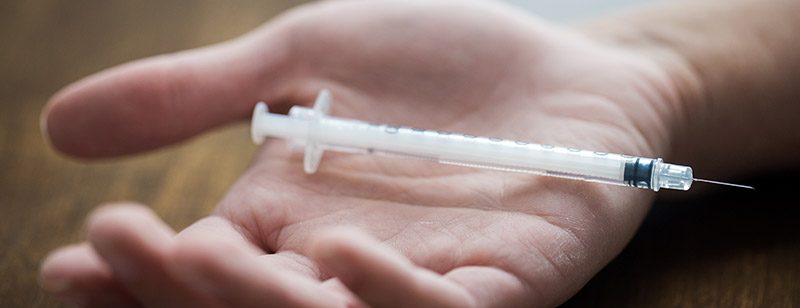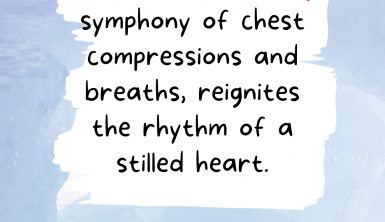Drug overdose, whether premeditated or accidental, could happen to anyone. Seeing someone suffer from an overdose is traumatic. Not knowing exactly what, why, and what quantities they have consumed can cause panic. An overdose can have mild, moderate, or even fatal results.
According to statistics from the Drug Policy Alliance, drug overdose is the leading cause of deaths in people aged 50 and below in the United States. This implies that accidental drug overdose deaths exceed those caused by car accidents, firearms, homicides, and even diseases such as HIV/AIDs. Most of these deaths are preventable if the people around the patient can tell what drug has been used and how to apply the right first aid treatment.
What is Drug Overdose?
Drug overdose takes place when a person ingests a huge amount of one or more drugs which overwhelm the body. A drug refers to anything, except food and water, which has a psychological or physical effect on the body’s functions. A person can overdose on legal prescription drugs, alcohol, caffeine, tobacco, as well as illegal drugs such as heroin. An overdose may either be acute, where a person consumes a huge dose at once, or gradual, where the drugs build up in the body over time.
Causes of Drugs Overdose
Drug overdose is caused by the inhalation, injection, or ingestion of any drug in higher than the recommended dosage. While in some cases this is accidental, in some instances the patient may be overdosing to harm themselves.
A drug overdose can also be caused by the interaction of prescribed or non-prescribed drugs in the body. Such interactions could heighten the therapeutic effects the drugs or medications are supposed to induce, resulting in adverse side effects.
While children are likely to overdose if drugs are kept within their reach, cases of drug overdose in teens and adults are likely to be intentional.
Signs and Symptoms of Different Drug Overdoses
Drug overdose symptoms vary based on the drug or medication used and the quantities consumed. However, there are general signs and symptoms of overdose which include:
- Nausea and vomiting. In some instances, these are accompanied by diarrhea
- Dizziness, loss of balance, or lack of coordination
- Abdominal cramping
- Seizures
- Confusion
- Extreme drowsiness. In severe cases, the patient may slip into a coma
- Delusional, irate, or aggressive behavior
- Difficulty breathing
- Extremely hot skin or excessive sweating
Different substances affect body functions including the nervous, digestive, vascular, respiratory, and urinary systems differently.
Signs of an Opioid Overdose
Opioids or narcotics refer to prescribed medications, which include hydrocodone, Vicodin and OxyContin, as well as illegal drugs such as heroin. These prescription drugs are prescribed in the case of chronic pain due to an injury, after surgery or due to diseases such as cancer. Unfortunately, these have become some of the most abused drugs in the United States. According to the Centers for Disease Control and Prevention, of the 70,237 overdose deathswhich occurred in 2017, 47,600 were as a result of opioids overdose.
As opioids affect the section of the brain that regulates breathing, an overdose could slow or stop breathing and in severe cases, death. Some of the signs of an opioid overdose include:
- Confusion or deliriousness
- Breathing problems such as irregular or slowed breathing, and respiratory arrest where the patient stops breathing entirely
- Pinpoint pupils
- Extreme drowsiness or unresponsiveness to stimuli
- The nails, lips, and skin may get cold, clammy, or turn blue
- A very weak pulse due to low blood pressure
Signs of Stimulant Overdose
Stimulants refer to any psychoactive drugs which cause a heightened sense of alertness and energy by stimulating the neurons in the brain. Just like opioids, stimulants may be either legal or illegal. Examples of prescription drugs that are stimulants include Adderall which is administered to ADHA patients and Ritalin. Illegal stimulants include crack, cocaine, and methamphetamine. People who overdose on stimulants risk experiencing seizures, a heart attack, a stroke or psychosis.
Signs that a person has overdosed on a stimulant include:
- Hallucination, confusion, and disorientation
- Paranoia
- Anxiety or agitation
- Severe head and chest pains
- Seizures, tremors, or jerking limbs
- Loss of consciousness
- Extreme body temperatures but without sweating
- An extremely fast pulse
Signs of Alcohol Overdose
Alcohol is also one of the most widely abused substances across the globe. Data shows that at least 6 people die daily from alcohol overdose or poisoning in the United States. The risk of poisoning is escalated when the alcohol is consumed alongside drugs which suppress the nervous system or sedatives.
Signs of alcohol poisoning include:
- Confusion, loss of coordination, inebriation, or complete loss of consciousness
- Vomiting
- Seizures
- Irregular or slowed breathing
- Hypothermia (extremely low body temperatures)
- Paled skin which may sometimes take a bluish tinge
A person suffering from alcohol poisoning risks going into a coma or even death.
Should the Public Be Trained to do CPR on Overdose Victims?
The current opioid and drug overdose crisis have prompted government health agencies across the United States to start providing training. Apart from being trained on how to administer CPR, the public is educated on how they can detect early signs of drug overdose. The training is meant to equip the public on expected drug overdose response behaviors which lead to fewer adverse consequences.
Due to the opioid crisis, agencies are advocating for the availing of Narcan to:
- Family members or companions of patients who are taking prescription drugs with opioids
- Early responders to EMT calls
- Corrections staff and law enforcement personnel
- Medical staff who serve people with substance use disorders
- Community-based or state-sponsored organizations that are in locations facing high risks in opioid overdose
CPR training to the public will develop pain management strategies which key to the accessibility of evidence-based care. This reduces the burden of drug abuse on individuals, families, and society as a whole.
How to Administer First Aid on a Person who Overdoses
The first step before commencing with CPR overdose is to seek medical attention by calling 911 immediately. While you may perform the following procedures before the medics arrive, do not put your safety at risk as certain drugs can trigger unpredictable or violent behavior.
- Check the patient’s breathing and heart rate
- If unconscious, try getting a response by asking questions, rubbing his knuckles, or pinching them lightly. Apart from helping you assess their coherence and alertness levels, asking relevant questions will also help you keep them engaged. This is a good chance to assure them that help is on the way
- If the patient becomes agitated or too aggressive to be restrained, you could involve the police
- If the patient is unconscious, try turning them to their side to keep them from choking should they vomit. If they have difficulty breathing, it may be necessary to perform rescue breathing. Simply tilt their head and lift the chin. Seal their lips with yours as you pinch the nose. Start by giving them two deep breaths into their mouth and one long breath at five-second intervals
- If possible, obtain information that will help with the treatment. Such as the kind of drug the person has overdosed on, the last time they took it, and how much they took
- Take note of drug identifying paraphernalia such as drug containers, syringes, or needles. Take this along with you to the ER even if they are empty
- As noted on the signs and symptoms of overdose, some drugs may cause extreme body temperatures. If this is the case, remove the patient’s clothing so that his skin is exposed to the air.
What Type of CPR Should I Perform on a Person who has Overdosed on Opioids?
If not promptly attended to, an opioid overdose can lead to cardiac arrest and ultimately, death. This makes CPR opioid such as chest compressions or rescue breathing crucial. If you have access to Naloxone or Narcan, (non medical professionals are being encouraged to carry Naloxone) administer it according to the instruction on the drug’s package. This is a prescription drug used to reverse the effects of an opioid overdose.
What Not to do When a Person Overdoses
- Unless authorized by a certified CPR personnel, do not induce vomiting
- Do not leave the patient alone, rather, stay with them and constantly monitor their condition
- Do not try to argue or reason with someone you suspect has overdosed. Drugs impair a person’s thinking so they might not behave reasonably or rationally
- Do not try to feed the patient with food or drinks such as alcohol, milk, or soda. These can have adverse effects
- Never wait for the effects of drug overdose to wear off. Calling for help immediately may mean the difference between life and death
- Try not to let the patient pass out by keeping them engaged. Passing out is often a sign of a worsening condition
- Do not put the patient in the shower as is common in the movies. Abrupt temperature changes may put the patient in a state of shock. Besides, they could become unsteady and fall
Drug Overdose Diagnosis, Prognosis, and Treatment
As soon as the patient is taken to the hospital, the doctors will perform a physical exam to establish what kind of drug he used. Such tests include blood and urine analysis. Lab tests could also be used to establish whether any internal organs have been damaged.
Drug overdose prognosis depends on the type of drug, amount consumed, the symptoms’ severity, the time that has lapsed between overdose and treatment, and the patient’s general wellbeing. In cases of mild and moderate overdose, prompt management of the symptoms normally leads to a good prognosis. Severe overdose demands aggressive treatment especially if the patient is experiencing life-threatening symptoms. Lack of prompt treatment may lead to deaths due to internal bleeding, respiratory failure, irreversible brain damage, or multiple organ failure. In fatal overdoses, it would be prudent to call in a medic right away.
The medics may take any of the following treatment options as soon as they identify what kind of drug the patient overdosed on:
- Administer fluids through intravenous drip lines especially of dehydration is imminent
- Administer an antidote which counters the drug’s effects
- Activated charcoal may be administered. This effectively confines the drug to the digestive system thus preventing it from being absorbed into the bloodstream. Normally, a cathartic is issued along with the charcoal to facilitate the expulsion of the drug as stool
- An artificial respirator may be used if the patient is under respiratory distress
- Sedatives or physical restraint may be used on an agitated or aggressive patient until the drug’s effects wear off
- Serious symptoms such as low blood pressure, seizures, irregular heart rate, and any internal bleeding will be medically managed.
Drug Overdose Prevention
Drug overdose cases can be significantly minimized with the following steps:
- Prescription drugs, including supplements, should be kept in a place that’s out of reach of small children or ensure that they have child-proof lids
- Take the right dose at the recommended time. Also, desist from self-medicating or taking drugs that have been prescribed for somebody else
- For older people who are bound to forget, use single-dose containers with relevant time labels. This keeps them from taking multiple drugs
- Monitor drug intake for individuals suffering from mental health issues such as depression
- Should your physician prescribe a certain medication while you are on another dose, inform them. This will help them know whether what you are taking will react with what they have prescribed
- Always inform your physician if a certain drug is not effective
- Avoid using multiple substances. For instance, avoid drinking alcohol if you are taking any drugs
- Seek help if you think you or your loved one is becoming addicted
How do I learn more?
Whether you are a medical practitioner who wants to refresh their skills or you want to take a CPR course as due to a job requirement, it is important to educate yourself on basic drug overdose first aid procedures. Our courses are designed to be fun and engaging, and you get to practice the skills you’ve learned through real-life scenarios. While our CPR certifications do not expire, the knowledge and skills you have gained from the CPR course may become outdated over time. Regular training is a good way of ensuring that you are better in a better position to respond to an emergency. And yes, National CPR Foundation is legitimate.







